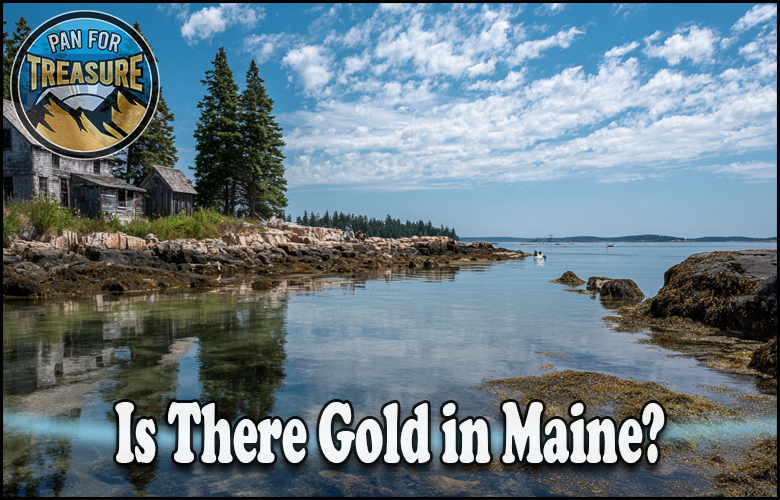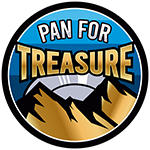
Disclosure: This Post Contains Affiliate Links; We earn a commission on purchases.
Are you intrigued by the idea of discovering gold in the beautiful state of Maine?
You may be surprised to learn that gold can indeed be found in this northeastern gem.
Maine is not typically associated with gold mining, but it holds significant potential for those interested in gold prospecting and exploration.
Key Takeaways:
- Maine has gold deposits in various geologic environments, including stream beds.
- Prospecting is regulated to protect the environment and ensure responsible practices.
- Gold panning is allowed without a permit as long as certain guidelines are followed.
- Motorized recreational prospecting requires permission and has specific regulations.
- Organized and unorganized townships have different regulatory bodies to contact.
Organized vs. Unorganized Townships in Maine
Understanding the distinction between organized and unorganized townships in Maine is important for gold prospectors. Organized towns are regulated by the Maine Department of Environmental Protection, while unorganized townships fall under the jurisdiction of the Land Use Planning Commission (LUPC). It is necessary to know which agency to contact for information and permits depending on the location of your prospecting activities.
Organized townships in Maine, such as Portland and Bangor, have established local governments and governing bodies that enforce regulations related to land use and environmental protection. These regulations are overseen by the Maine Department of Environmental Protection. Gold prospecting activities in organized townships may require permits or specific permissions from local authorities to ensure compliance with environmental guidelines.
On the other hand, unorganized townships in Maine, such as T7 R11 WELS and Penobscot Indian Island Reservation, do not have local governments and are administered by the LUPC. The Land Use Planning Commission regulates land use and development activities in unorganized townships, including those related to gold prospecting.
When planning your gold prospecting activities in Maine, it is essential to refer to the specific regulations set by the appropriate governing body. Depending on the location of your prospecting site, you may need to contact either the Maine Department of Environmental Protection or the Land Use Planning Commission to obtain the necessary information, permits, and approvals.
Sources of Gold Information in Maine
For individuals interested in learning more about gold prospecting in Maine, there are various sources of information available. These resources provide valuable insights and guidance for both beginners and experienced prospectors. Whether you’re looking to explore old gold mines, learn panning techniques, or connect with like-minded enthusiasts, here are some gold prospecting resources to consider:
1. Maine Mines and Minerals
The book “Maine Mines and Minerals” by Philip Morrill and William Hinckley is a comprehensive guide that offers detailed information on old gold mines in the state. It provides valuable historical context as well as practical advice for those seeking to explore abandoned mine sites and uncover hidden treasures.
2. Gold Panning Books
There are several books available that focus specifically on gold panning techniques and tips. Two noteworthy titles include:
- “The Next Bend in the River” by C.J. Stevens
- “Gold Fever – The Art of Panning and Sluicing” by L. DeLorenzo
These books offer valuable insights into the art of panning and sluicing, providing step-by-step instructions, equipment recommendations, and advice on locating and extracting gold from streambeds.
3. Gold Prospecting Clubs
Gold prospecting clubs can be an excellent resource for individuals looking to connect with other enthusiasts and gain practical knowledge from experienced prospectors. One prominent club in Maine is the Central Maine Gold Prospectors. They provide resources, organize group outings, and offer support for individuals interested in pursuing gold prospecting as a hobby or even a business venture.
By utilizing these sources of gold information in Maine, aspiring prospectors can deepen their understanding of the state’s gold resources, refine their techniques, and connect with a vibrant community of fellow gold seekers.
Conclusion
Gold prospecting in Maine is an exciting opportunity for adventurers to uncover hidden treasures and explore the state’s rich gold resources. While there are regulations put in place to ensure responsible prospecting and safeguard the environment, there are still ample opportunities to find gold in Maine’s stream beds.
By adhering to the regulations, seeking landowner permission, and leveraging available resources and information, individuals can embark on a rewarding gold prospecting journey in Maine. Whether you are a hobbyist or considering gold prospecting as a business, Maine’s diverse geologic environments and abundant placer deposits offer promising potential for success.
From the thrill of panning for gold in pristine streams to the camaraderie of joining gold prospecting clubs like the Central Maine Gold Prospectors, there are numerous avenues for enthusiasts to connect and learn from experienced prospectors. Additionally, resources such as the book “Maine Mines and Minerals” by Philip Morrill and William Hinckley provide invaluable insights into historical gold mines and can serve as a guide for exploration.
So, if you’ve ever dreamed of striking gold, don’t miss out on the opportunity to get involved in gold prospecting in Maine. With a passion for adventure, a respect for the environment, and a thirst for knowledge, you can embark on a thrilling journey uncovering the treasures that lie beneath Maine’s beautiful landscapes.

Meet Ryan Conlon, the passionate owner and driving force behind Pan for Treasure.
With an unwavering love for the art of gold panning, Ryan has transformed his enthusiasm into a thriving community hub for fellow treasure seekers. [email protected]
A seasoned gold panning enthusiast, Ryan’s journey began with a simple pan and a dream, evolving into a deep appreciation for the history, geology, and thrill of uncovering precious metals.
Subscribe to Our Newsletter
